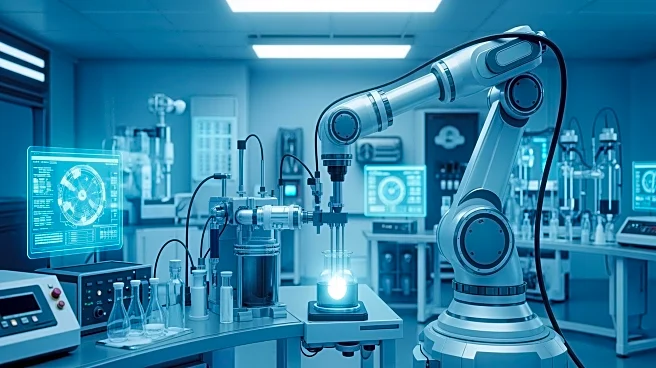What's Happening?
Researchers at the University of Chicago have developed a self-driving lab system that automates the synthesis of thin metal films used in electronics and quantum technologies. The system uses robotics and artificial intelligence to conduct experiments,
measure results, and adjust parameters without human intervention. This innovation aims to streamline the process of physical vapor deposition (PVD), which is sensitive to numerous variables. The self-driving lab can quickly and accurately produce desired film properties, significantly reducing the time and effort required for material synthesis.
Why It's Important?
The development of a self-driving lab represents a significant advancement in material science and engineering. By automating the synthesis process, researchers can focus on more complex tasks, accelerating the pace of innovation. This technology has the potential to revolutionize the production of materials for next-generation electronics and quantum devices. Additionally, the system's ability to handle variations in experimental conditions could improve the reproducibility of scientific research, addressing a common challenge in material synthesis.
Beyond the Headlines
The self-driving lab exemplifies the growing integration of artificial intelligence and robotics in scientific research. This approach could lead to more efficient and cost-effective manufacturing processes, with implications for various industries. As the technology matures, it may enable the discovery of new materials with unique properties, further expanding the possibilities for technological advancement.















